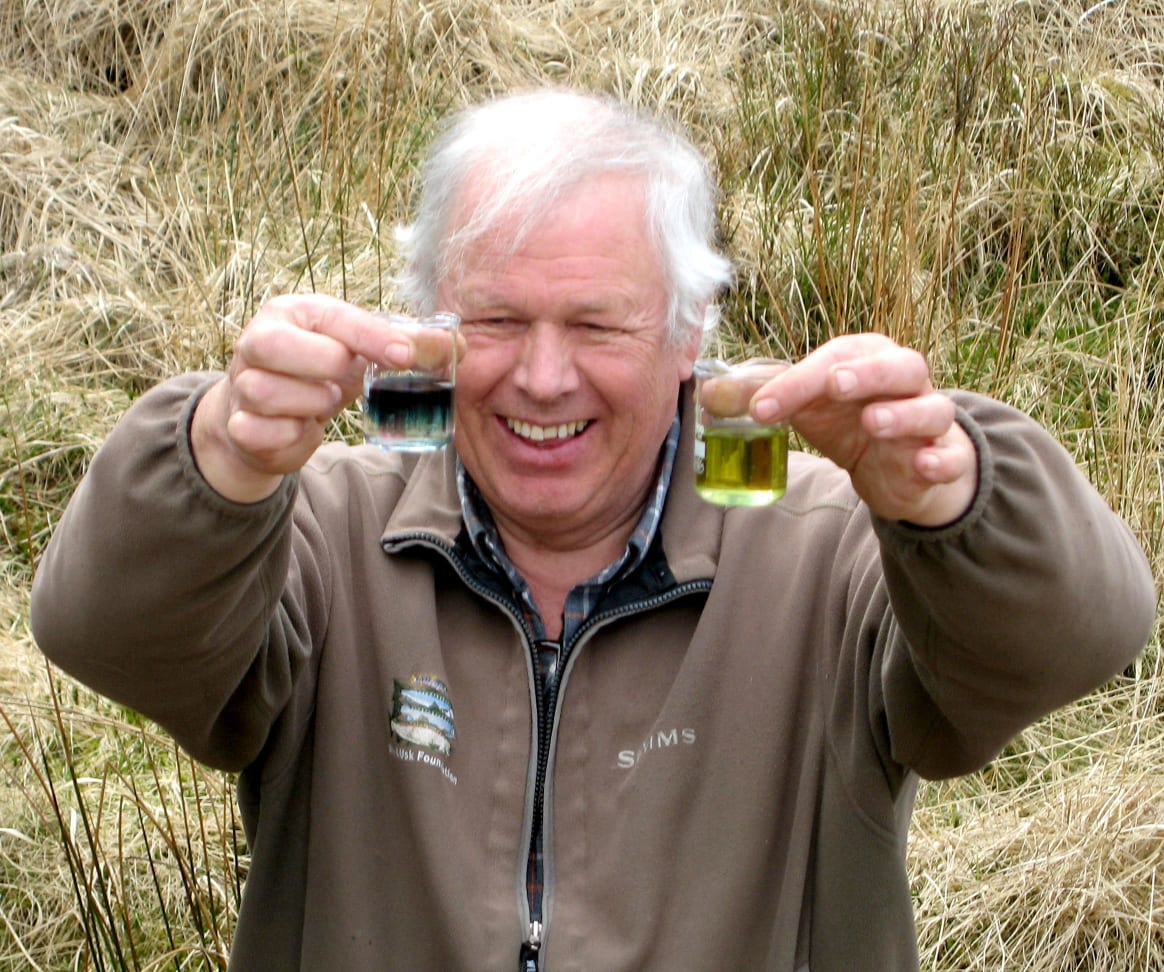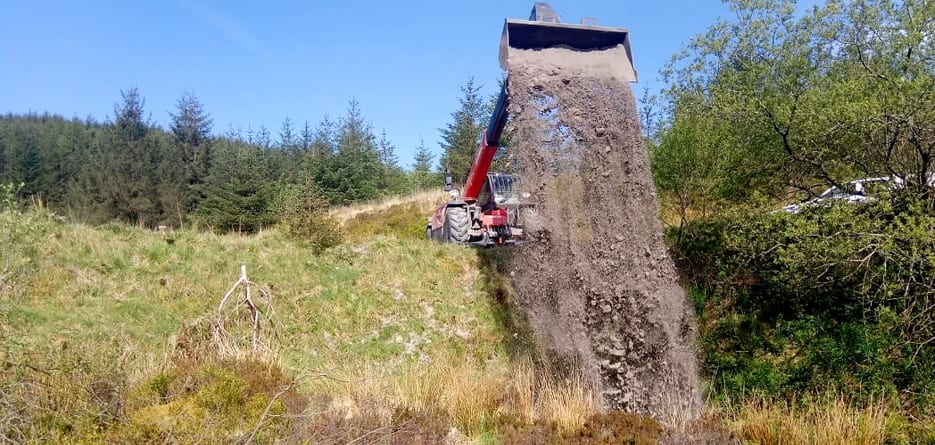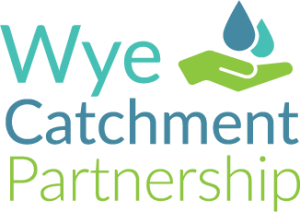Wednesday 18th November, 2020
In early November, a peer-reviewed scientific assessment of the Foundation’s water quality work in the headwaters of the rivers Wye and Irfon was published.
The study, carried out by Dr Ingrid Jüttner of the Museum of Wales, looked into the effectiveness of the annual liming operations that we started in 2003 to correct the long-standing problem of acidity. This was the major factor affecting water quality in these remote parts of the Wye catchment which, thankfully, have not suffered from the same increasing phosphate levels or algal blooms that blight the Ithon and main river further downstream.
We are pleased to report that Dr Jüttner’s research has confirmed that the liming work has led to a recovery of the water chemistry, ecology and fisheries of the upper Wye and Irfon.

Before the liming programme began, closer inspection of seemingly pristine streams like this in the upper Wye and Irfon would reveal them to be completely lifeless. With every rise in water levels came a deadly surge in acidity.
In the mid-1990s these rivers were suffering sudden surges in acidity, usually after rain. What otherwise appeared to be perfectly healthy streams were sporadically made lifeless by dramatic drops in the pH of their water. Every time life began to recover, another flush of acidity would wipe everything out.
These severe acid events killed invertebrates, fish eggs and even young fish themselves. In fact, the whole ecology of these streams was affected, right down to simple organisms such as the diatoms that were studied as part of Dr Jüttner’s research.
But perhaps the most tangible impact was on the Wye’s salmon population.  Historically, these furthermost extremities of the system have been the preferred spawning areas for the river’s famously large, multi-sea winter spring salmon. It is no coincidence that the increase in the frequency and intensity of these acid events coincided with the decline in these iconic fish.
Historically, these furthermost extremities of the system have been the preferred spawning areas for the river’s famously large, multi-sea winter spring salmon. It is no coincidence that the increase in the frequency and intensity of these acid events coincided with the decline in these iconic fish.
This problem was one that our late founder, Dr Stephen Marsh-Smith OBE, was determined to solve. In partnership with colleagues from Cardiff University and National Museum of Wales, Stephen devised and instigated the liming techniques that we have used since 2003 to mitigate these lethal spikes in acidity (the photo on the right shows him testing the pH of an upper Wye stream).
Allied to Dr Jüttner’s research, our own electrofishing surveys have been showing a recovery in the juvenile salmon populations of the upper Wye and Irfon since the liming programme began. These areas are now two of the five most productive for juvenile recruitment in the whole Wye system.
To maintain this situation and even improve on it, annual liming must continue. The good news is that the programme will continue to be supported for the next few years by the ‘Alternative Mitigation’ fund, which was set up following the closure of salmon hatcheries and is controlled by Natural Resources Wales.

The Foundation’s habitat team sand liming a ‘first order’ stream in the upper Irfon catchment. Liming is not the most subtle of river river restoration techniques, but the recent report shows that it is effective.
Liming headwaters may not be the most complex or subtle river restoration technique. It certainly took all of Stephen’s powers of persuasion to convince statutory authorities to allow us to proceed and there are still those, particularly within Natural Resources Wales, that have their doubts about it. However, we believe that this latest research more than vindicates the time and effort he put into this area of the Foundation’s work.
It is a great shame that Stephen did not get to see the final report. As Dr Juttner acknowledges in the paper “The recovery of the upper Wye and Irfon is one of his many environmental legacies.”
Please support this work
If you would like to help us continue our work to restore water quality in the upper Wye and other areas, please consider making a donation to our projects
The Foundation is grateful to the following for their help and expertise in the acid waters correction programme:
Natural Resources Wales and its founder bodies, especially Ray Woods from the previous Countryside Council for Wales
UK Centre for Ecology and Hydrology
All Wye owners who support the River Improvement Fund
The landowners of the Upper Wye and Irfon
Further reading:
Dr Jüttner’s Research Paper: “Assessing the impact of land use and liming on stream quality, diatom assemblages and juvenile salmon in Wales, United Kingdom”
Acid Waters – the causes and effects of acidity in the Wye catchment
Correcting Acidity – the Foundation’s work to solve the problem of acidity in the headwaters



